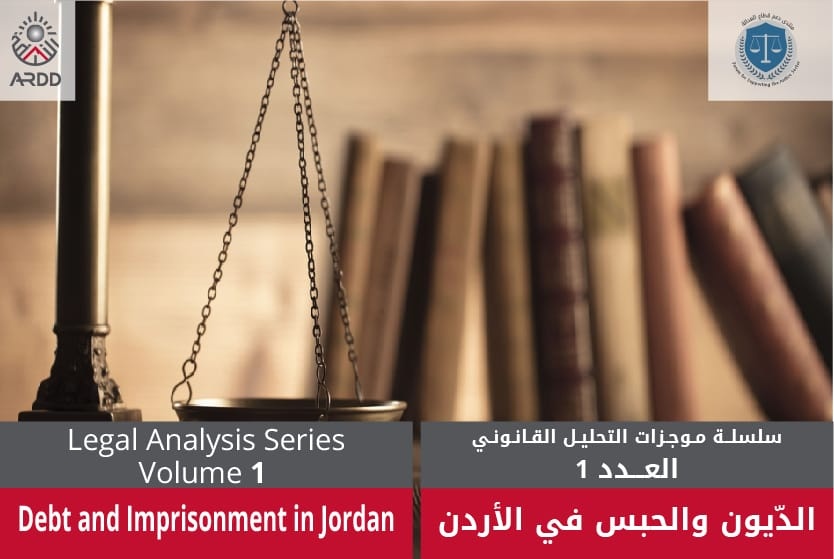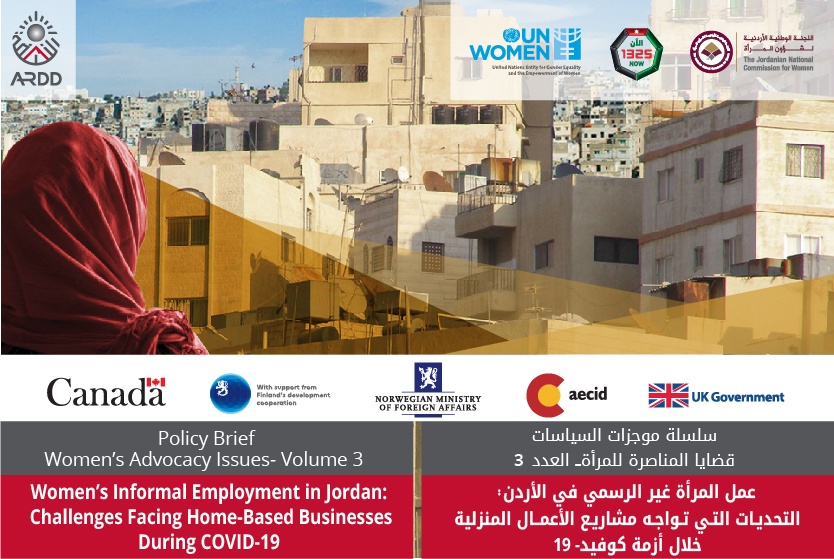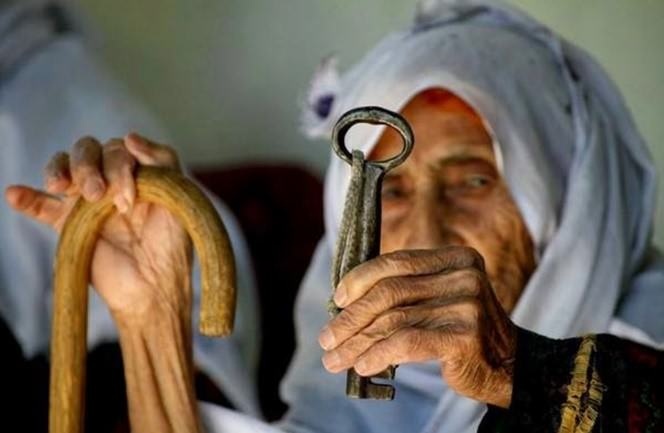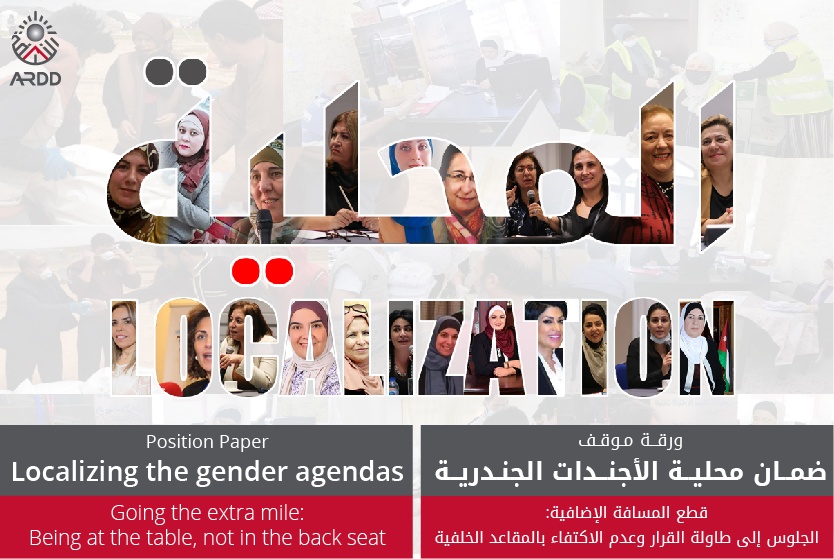JONAF’s observations on bill () 2021 Jordan Associations’ Law (associations’ law amendment bill)
Seeking to contribute to the efforts to create a law that promotes the role of various local and international civil society organizations and associations, the Jordanian National NGOs Forum (JONAF), sent a letter to the minister of social development and the reviewing committee of the Associations Law 2008 stressing the importance of implementing several procedures […]
Debt and Imprisonment in Jordan Legal Analysis Briefs Series Volume 1

Debt and Imprisonment in Jordan brief discusses the legal frameworks for debt in Jordan and looks at repayment of debt according to the Jordan execution law and the penal code. It also sheds light on the impact of the Covid-19 crisis on debt repayment and the implications of the debts of women and refugees. The […]
Women’s Informal Employment in Jordan: Challenges Facing Home-Based Businesses During COVID-19 Women’s Advocacy Issues Policy Brief Volume 3

Jordan has moved into the second year of the COVID-19 crisis. The lockdowns, the global economic slowdown, trade disruptions, and the suspension of international travel have “exacerbated existing structural weaknesses in the economy and unresolved social challenges and put pressure on the country’s fragile macroeconomic stance.” Assessments conducted during the first wave of the pandemic revealed […]
Beware of delegation…displacement and assignment of properties to the the Custodian for Absentees’ Property A statement issued by civil society organizations in Lebanon, Palestine and the diaspora

Civil organizations in Lebanon, Palestine, and the diaspora have revealed evidence and data confirming the involvement of lawyers and institutions operating in Lebanon seeking to displace Palestinian refugees from Lebanon to Western countries and liquidate their rights in the face of the colonial state “Israel” by transferring property ownership to the so-called custodian of absentees’ […]
JIF and JONAF point to successes and challenges in responding to Syrian refugee crisis in the Kingdom prior to the Brussels 5th Conference
The Jordan INGO Forum (JIF) and the Jordanian NGOs Forum (JONAF) launched the 2021 Walk the Talk report on progress and challenges faced in implementing the commitments made by the Government of Jordan and the International Community under the Jordan Compact and at subsequent Brussels meetings in 2017, 2018, 2019, and 2020. As with […]
Women’s Financial Vulnerability: Challenges Women Face with Debt and Loans
In August 2020, ARDD collected data from 506 women in Jordan to gauge their financial situation, particularly the impact COVID-19 has had on their financial debt. The analysis of the data, combined with information and insight from the 19 CBOs participating in this project, resulted in very informative findings regarding women’s debt. Overall, COVID-19 has […]
JONAF raises reservations vis-à-vis amendment to the Companies Law No. 35 of 2010
Issuing a statement, the Jordan National NGOs Forum (JONAF) expressed reservations about an article in the amendments of Companies Law No. 35 of 2010. At a time when the Jordanian government seeks to secure for the civil society organizations an environment that enables them to practice their work within the local and international legal framework, […]
Localizing Gender Agendas Position Paper

Local organizations’ agency must be strengthened if local communities’ needs are to be met The Arab Renaissance for Democracy and Development (ARDD) has launched a position paper, titled “Localizing the Gender Agendas”, calling on the local organizations to strive to reach decision-making positions at all levels and to set their priorities in their agendas in […]
How Women-led Civil Society Organizations Empowered Vulnerable Women During Covid-19 Pandemic: the Indebtedness of Women in Jordan
Indebtedness is one of the main factors that impact women’s economic empowerment in Jordan. Women in Jordan have one of the lowest labor participation rates in the world, double-digit unemployment rates reaching over 30%, and since they hold lower financial inclusion rates than men, they are more likely to be indebted. The COVID-19 crisis has […]
A policy brief calling for enabling social and political participation of Palestinian refugee youth in the MENA region
The brief calls for efforts to be exerted to enable the participation of Palestinian refugee youth in public governance within their communities, beyond traditional civic engagement approaches. Only by doing so can risks posed by general frustration, socio-political disengagement, and low levels of trust in institutions be avoided. The Policy Brief is based on Al […]
